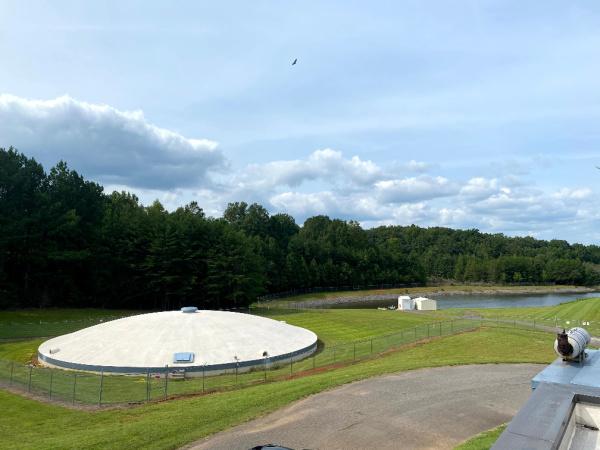North Carolina – The State Water Infrastructure Authority of North Carolina authorized $164 million in financial assistance to help fund 76 water and wastewater projects throughout the state.

Davie County Water Treatment Plant
These projects are funded through the Clean Water State Revolving Fund, Drinking Water State Revolving Fund, Drinking Water and Wastewater State Reserves, and the Viable Utility Reserve.
Some of the projects approved in the latest funding round include:
- The city of Sanford and the town of Fuquay-Varina will receive a combined $35 million for expansion of the Sanford Water Treatment Plant.
- Durham County secured almost $19.3 million for its Chin Page Road pump station project.
- The city of Belmont will get more than $15 million for improvements to a pump station and force main.
- Davie County will collect more than $9.12 million for a water supply improvement project through the Drinking Water State Revolving Fund. This project creates a stronger regional water system by expanding Davie County’s Cooleemee Water Treatment Plant and adding an interconnection to the city of Mocksville, allowing Mocksville to decommission its Lagle Water Treatment Plant.
- The town of Wilkesboro secured $3 million in Wastewater Reserve grants and an additional $30 million in a combination of State Revolving Fund loan and principal forgiveness, to expand its wastewater treatment facility.
- The town of Pilot Mountain was awarded $2.84 million in Wastewater Reserve to replace its aged wastewater collection system infrastructure.
- Projects in 19 counties will receive funding to conduct asset inventories and assessments of drinking water and wastewater systems to plan for long-term rehabilitation and replacement of aging and critical infrastructure.
Studies show that North Carolina needs from $17 billion to $26 billion in upgrades to its water and sewer infrastructure statewide over a 20-year period, according to the governor’s office.
